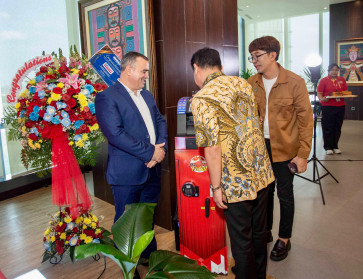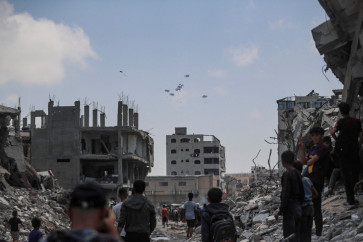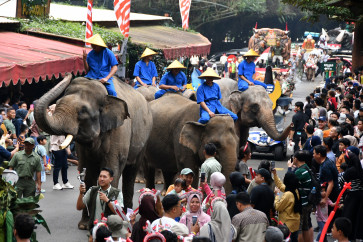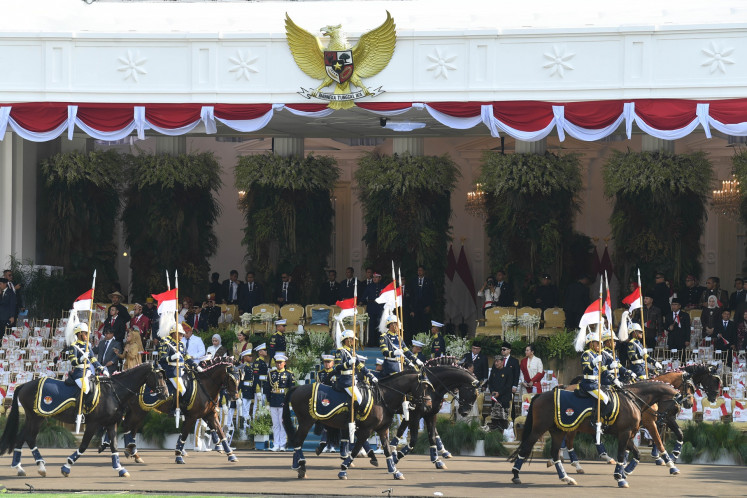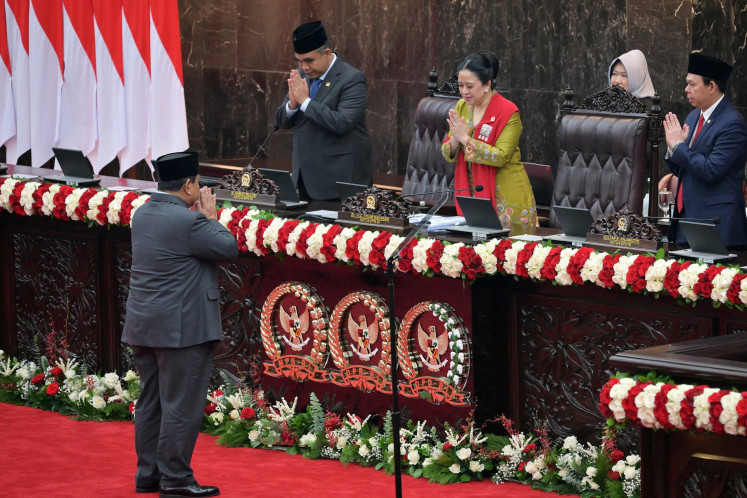Popular Reads
Top Results
Can't find what you're looking for?
View all search resultsPopular Reads
Top Results
Can't find what you're looking for?
View all search resultsUncle John, coffee roasting innovator
The scent of roasted beans filled the air on Jl
Change text size
Gift Premium Articles
to Anyone
T
he scent of roasted beans filled the air on Jl. Duta Raya, West Jakarta, luring people to the source of the inviting aroma, a house belonging to a prominent maker of coffee roasting machines, Johny Rahadi, 58.
In the front room of his house, which also functions as a workshop, Johny's son, Jeffrey Satria, 30, sits in front of a coffee roaster, stirring hot coffee beans in its cooler box.
Occasionally, he pulls out coffee beans from the roaster and smells the savory and sweet scent.
'The taste of good coffee is determined not only by the quality of the beans but also the roasting machine,' said Johny.
Dedicating his life to producing coffee roasters under his company Uncle John, Johny produces tailor-made roasting machines in limited quantity to maintain quality.
Johny said that he had been passionate about coffee since the 1980s, when he managed a coffee plantation in Timor Leste (previously known as East Timor). Having learned how to make coffee, he began to roast coffee in 1995 while creating innovative coffee roasting machines.
Johny, who holds a bachelors degree in agriculture, eventually decided to dedicate his time to making coffee roasting machines when East Timor became an independent country in 1999.
After years of self-training, Johny is now well-known for his machines, some of which are exported to a number of countries, such as Singapore, Malaysia and the US.
When asked how his works were able to reach foreign countries, Johny said that his machines rivaled those produced in well-known manufacturing countries such as Germany.
'My machines are simple to operate and can improve the taste of coffee,' said Johny, adding that while most engineers created machines in accordance with manufacturing rules, he designed them based on how he envisioned coffee to taste.
Designs of coffee roasting machines should be adjusted to the desired taste, added Johny, who revealed that the secret to the quality of his machines could be found in their air flow, speed and thermal.
Johny currently makes coffee roasting machines with a capacity of between 1.5 and 200 kilograms. He sells them to domestic customers, mostly cafes and coffee shops, for between Rp 25 million (US$1.8 million) and Rp 45 million.
However, he said that he could meet requests for machines with other capacities.
Johny also sells products to individuals and offers coffee roasting training based on requests.
He furthermore said that he would keep his business 'organic' as he was not aiming to go commercial.
'I see my work as an expression of my self-actualization,' said Johny. 'However, once Jeffrey inherits the company, I will trust it to him.'
Stepping into his father's shoes, Jeffrey runs a coffee roasting business. He also sells roasted coffee beans under the name Kopikohlie to cafes and individuals in many cities, including Pekalongan in Central Java, Pekanbaru in Riau and Majalengka in West Java.
However, unlike is father, Jeffrey said he wanted his businesses to expand.
'My dream is to have a big manufacturer of coffee roasting machines,' said Jeffrey, who started learning how to roast coffee beans in 2013.


